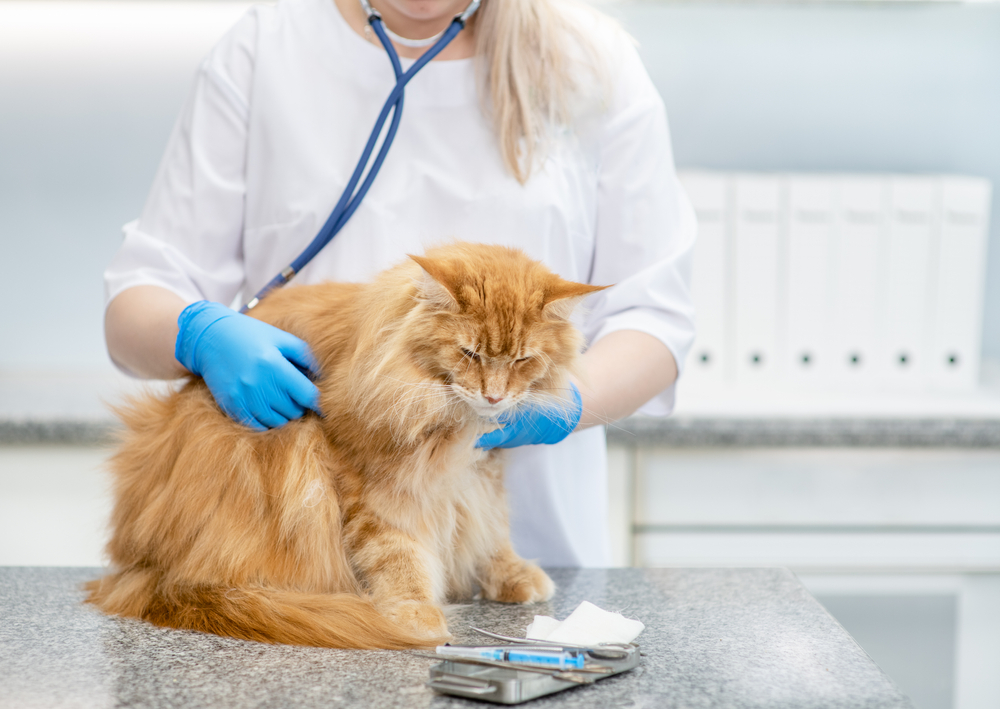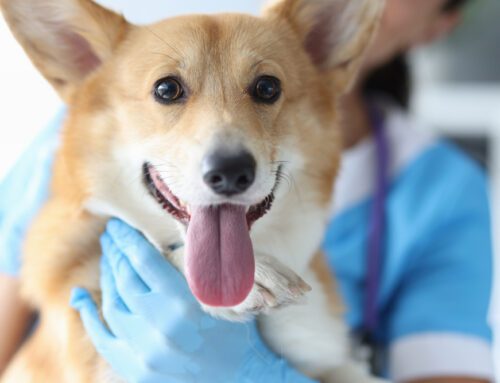Pets reach their senior years much sooner than humans, and while your pet won’t live forever, you can take steps to improve their health and increase their longevity. Our Village Animal Hospital team wants to help by offering do’s and don’ts to help add years to your pet’s life.
DO schedule regular wellness screenings for your pet
Pets are notorious for hiding vulnerabilities, and many do not indicate they are ill until their condition is advanced. Regular wellness screenings help our veterinary team detect your pet’s health issues in the early stages when they are easier to manage and typically have a better prognosis. Conditions that can be detected during a routine wellness screening include:
- Heart condition — During a physical examination, our veterinary team auscultates your pet’s heart, listening for heart arrhythmias and murmurs that can indicate a serious heart condition.
- Abdominal mass — We palpate your pet’s abdomen to check for abdominal masses and abnormal organs.
- Anemia — We perform a complete blood count (CBC) to detect conditions such as anemia, which can indicate concerning health issues.
- Organ dysfunction — We perform a biochemistry profile to detect conditions such as kidney and liver disease.
- Urinary crystals — We perform a urinalysis which can detect urinary crystals that may lead to a life-threatening urethral obstruction if not treated.
DON’T neglect your pet’s dental health
You may think your pet’s foul breath is normal, but halitosis can indicate a serious health issue. Dental disease is a common problem that affects most cats and dogs by 3 years of age, and can lead to issues such as painful gums, loose or missing teeth, and painful tooth root abscesses, as well as halitosis. In some cases, the bacteria that cause disease enters the pet’s bloodstream, potentially causing systemic complications that affect their organs. Steps to help prevent dental disease include:
- Scheduling professional dental cleanings — Most people visit the dentist at least once a year, and pets should do the same. They need their teeth cleaned by a veterinary professional to effectively remove the damaging bacteria from under their gum line. At the same time, our veterinary team can address any complications, such as loose or fractured teeth.
- Performing daily tooth brushing — Your pet needs their teeth brushed daily to remove plaque build-up between veterinary dental cleanings. Many toothpastes are on the market in pet-friendly flavors such as beef, poultry, peanut butter, and seafood to make the process easier.
- Providing dental treats — Provide treats approved by the Veterinary Oral Health Council (VOHC) to help remove plaque from your pet’s teeth.
DO provide year-round parasite prevention for your pet

Parasites frequently target pets and cause significant health complications. All pets, including those who live solely indoors, are susceptible, so providing year-round preventive medications to protect your four-legged family member from parasites is essential. Problematic parasites include:
- Heartworms — Heartworms are transmitted by an infected mosquito that takes a blood meal from your pet. These parasites enter your pet’s body, travel to their heart, and can cause extensive damage to the vasculature and lung tissue.
- Ticks — The prevalence of tick-borne illnesses, such as Lyme disease, ehrlichiosis, and anaplasmosis, seems to increase every year, causing serious health complications for many pets.
- Fleas — Many pets are allergic to flea saliva and suffer significant itching and skin disease. In addition, these parasites can cause severe anemia in puppies and kittens who are heavily infested.
- Intestinal parasites — Intestinal parasites, such as roundworms, hookworms, and whipworms, can cause gastrointestinal (GI) complications and other health issues for pets.
DON’T let your pet gain excess weight
Pet obesity is an increasing problem in the United States—more than half of pets are considered overweight by their veterinary care provider. You may think that a few extra pounds cannot harm your pet, but the excess weight predisposes them to several serious health issues, such as cancer, diabetes, hypertension, kidney disease, and arthritis. Steps to maintain your pet at a healthy weight include:
- Consulting a professional — At your pet’s next wellness screening, ask if your pet is at an ideal weight. Our veterinary team will accurately weigh your pet and assess their body condition score (BCS) to determine if their weight is healthy.
- Feeding your pet appropriately — Calculate your pet’s daily energy requirements, and measure their portions to ensure you are feeding them appropriately.
- Monitoring your pet’s weight — Weigh your pet every few weeks to ensure they are maintaining a healthy weight.
DO ensure your pet receives adequate exercise
Pets need exercise to stay physically and mentally healthy. Schedule time with your pet daily to ensure they receive adequate exercise for their age and breed. If your pet does not usually exercise, start slowly, gradually increasing the exercise duration and intensity as they get in shape.
DON’T neglect your pet’s mental health
Pets also need to exercise their brain to prevent boredom and keep them mentally engaged. Tips include:
- Feeding your pet using a food puzzle toy — Make mealtimes more challenging and interesting by feeding your pet using a food puzzle toy.
- Teach your pet a trick — Teach your pet a simple trick, and practice daily so they improve their skill.
- Make an obstacle course — Make an obstacle course with items in your home that your pet can navigate.
Following these do’s and don’ts can improve your pet’s health and add years to their life. If you would like to schedule a wellness examination or dental cleaning, contact our American Animal Hospital Association (AAHA)-accredited team at Village Animal Hospital, so we can help increase your pet’s longevity.








Leave A Comment